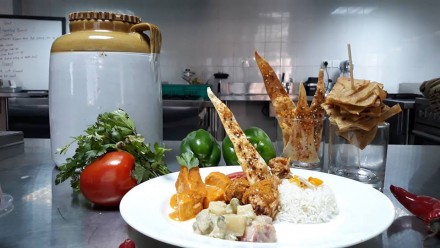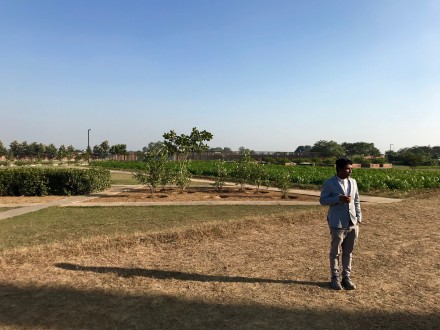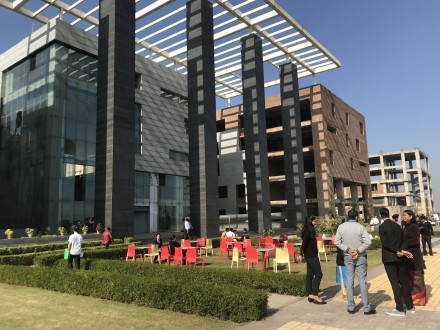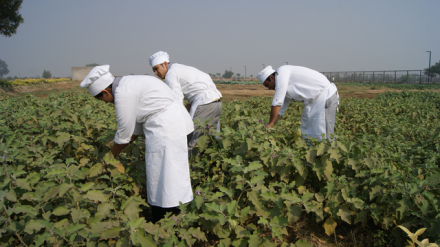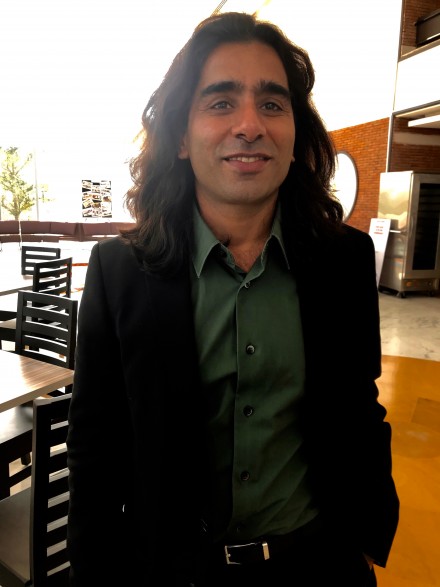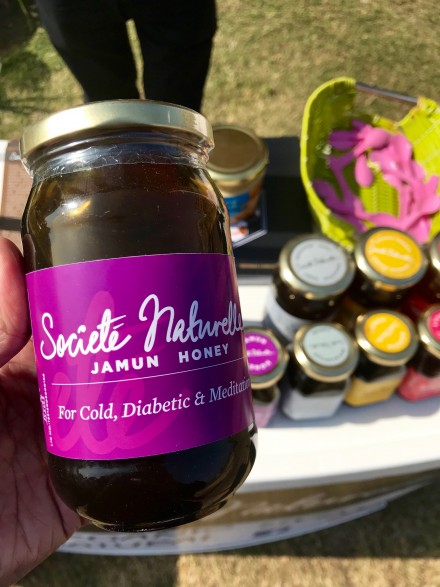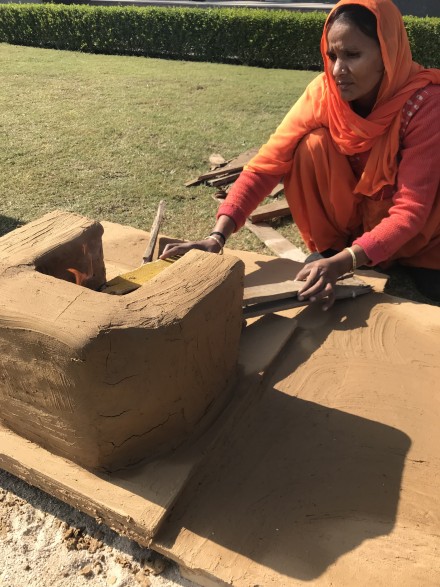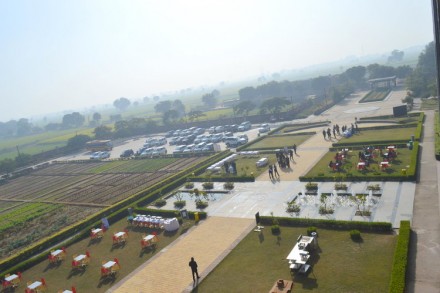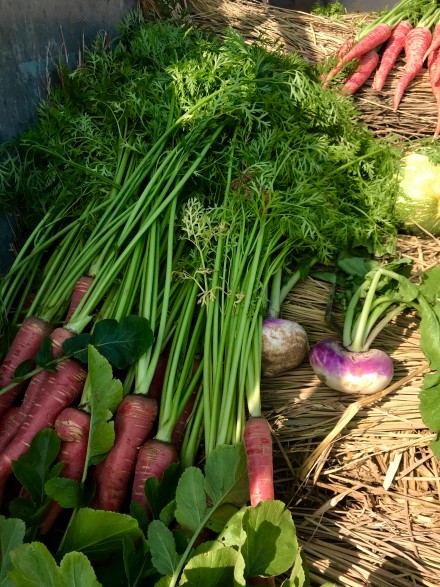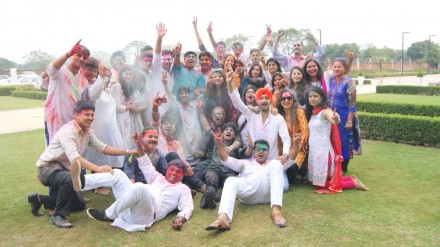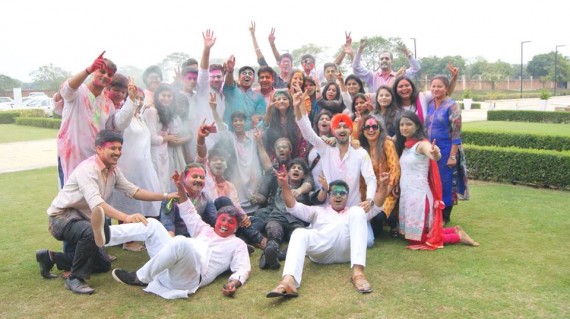
The Vedatya Institute
ON THE SOUTH SIDE OF DELHI in Gurgaon is a technical college that has high ambitions to provide a new type of education within service and hospitality. Unlike others, this college has a strong focus on applied knowledge and circular economy within food, from ‘farm to forks and fingers.’
The Institute, called Vedatya, is still young but has already achieved so much. Sanjoo Malhotra, co-founder of the platform and network Tasting India arrived there on a sunny December day in 2017 towards the end of Tasting India’s symposium on food, where Sanjoo and his co-founder Sourish Bhattacharya, had collected some of India’s leading influencers and change-makers.
The missing piece at the symposium, until that day, had been education; how to create a new type of integrated learning model for organic food businesses that would teach theory in a practical and experiential way.
From star chefs to culinary entrepreneurs.
I didn’t expect to find an organic farm on campus. Sanjay Sharma, Head Chef at Vedatya explains: “For a chef to be able to work effectively and maximize their creativity, they really need to know how food grows; what local ingredients are available, what is the seasonality, how are they grown, and which parts can be used.”
Vedatya currently has 4 acres of farmland, a herb garden, lots of fruit trees; mango, lychee, lemons, oranges, chiku, and papaya. And to complete the full ecosystem of sustainable practices, the institute is going to keep cows on-campus, for both compost and dairy and develop an 100 percent organic fish farm that can also create natural fertilizer. This integrated approach to applied learning allows current students in training, as well as industry professionals, to really value local, organic produce, and explore more sustainable culinary practices.
Amit Kapur, Managing Promoter of Vedatya explains: “India’s population is over 1,2 billion, almost 18 percent of the world, and yet we are a nation of mostly male engineers. 90 percent of those engineers are unemployed. We need to change our education system quickly and develop new types of skills. India’s education system is still in silos, and very gendered, and class divided.”
Kapur continues: “We really wanted to create something that will last beyond our lifetimes.” Ved means knowledge in Sanskrit, and Aditya means Sun. Vedatya, therefore, is a coined name that sounds like ‘Source of Knowledge.’ Its goal is to become a model for higher education and a hub of interdisciplinary knowledge with industry – where scientists and philosophers can work alongside farmers, gardeners, artists, chefs – and even engineers.
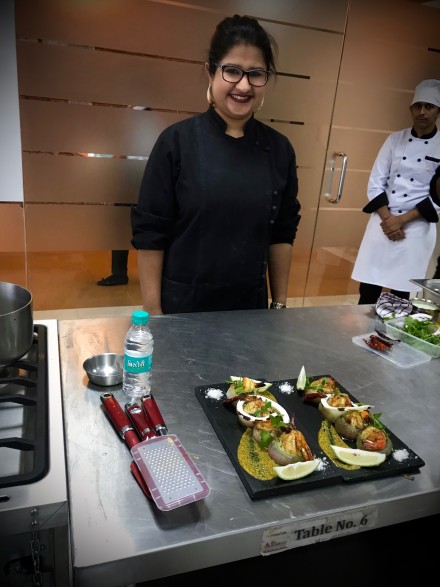
Chef Megha Kohli, Head Chef at the restaurant Lavaash Delhi, holding a class on how cuisines are reborn.
At Vedatya, a chef isn’t just a chef anymore. A culinary student could work anywhere in India’s food business – from being a hotelier or restaurateur, to re-branding and distributing local products to support small scale farmers and communities. Students need to know about locality, seasonality, and heritage – as well as all the soft skills of service design. One of the Vedatya’s alumni, Preet Singh, went back home and became an organic honey producer, selling his brand across India and overseas in Singapore.
Business know-how.
Another way that Vedatya is promoting applied education is by partnering with different industry players through an industry-academic partnership model that is quite unique in India. Industry partners are potential employers of Vedatya’s graduates, and so they can be an integral part of student’s curriculum that is reviewed every two years. This initiative has led to partnerships with InterContinental Hotels Group (IHG), one of the world’s largest hotel companies, and with Columbia Asia Hospitals, one of Asia’s leading hospital chains, in the healthcare industry, to name but two.
Class inequity – a major challenge.
“The Institute is in a rural setting, so every year we give 2-3 scholarship to young people from the neighboring local village,” adds Kapur. “Slowly we are getting young people interested in coming here to get an education but it isn’t easy.”
India has huge inequalities and a very complex caste system. The villagers come from backgrounds where they have absolutely no exposure at all to rapidly changing urban life. It’s a huge sacrifice for a youngster get an education when they are expected to help their families survive.
“One of our scholarship students wanted to quit after only a few months,” Kapur explained. Eventually he told the director that the reason he wanted to quit was because he is being bullied by his friends about the formal way he is required to be dressed at Vedatya. Even his family teased him for looking like a ‘plucked chicken’ because he was following Vedatya’s dress code to be well-groomed and wear a uniform.
“It sounds funny to us, but he was deeply ashamed. There is a conflict and context that even we don’t understand. We are talking a difference of 20 kilometers. We need to support rural communities and give them a longer perspective. We also need to help these communities survive,” concludes Kapur.
Organic India
When Vedatya and the Tasting India platform talk about food, they mean everything from the production of food, to food on the plate. Vedatya believes that organic food is second nature for India and it has the potential to be the new economic driver for a sustainable future, to getting people into the workplace and tapping into new industries such health tourism. Organic farming has the ability to feed India through new distribution channels, and offer solutions to major challenges, such as how to deal with food surplus, nurture cultural diversity within the vast continent, and create major export crops and produce that can take more than India’s current 1 percent of the growing global organic market.
Text by Tanya Kim Grassley.

